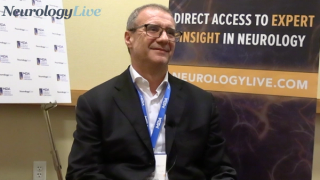
Muscular Dystrophy
Latest News

Latest Videos

Podcasts
CME Content
More News

A post hoc analysis of the phase 3 EPIDYS trial presented at CNS 2025 revealed that givinostat delayed disease progression in 2 distinct age groups of patients with Duchenne muscular dystrophy.

Edgewise Therapeutics reveals promising results for sevasemten, potentially the first approved treatment for Becker muscular dystrophy, enhancing patient outcomes.

New data reveals RGX-202 gene therapy shows significant improvements in Duchenne muscular dystrophy patients, enhancing disease management and safety.

Capricor Therapeutics reported that it remains on track for PDUFA target action date of August 31, 2025 and noted that advisory committee meeting is to be held in advance.

The European Medicines Agency has requested a pause on 3 clinical trials of FDA-approved gene therapy Elevidys following the death of a patient who suffered acute liver failure after treatment.

The HARBOR study is an ongoing phase 3 global study focused on assessing del‑desiran, formerly known as AOC 1001, which aims to treat the underlying cause of DM1.

Pooled safety data of delandistrogene moxeparvovec, a gene transfer therapy for Duchenne muscular dystrophy, suggests a manageable tolerability profile up to 5 years of follow-up.

New biomarker data presented at the 2025 Muscular Dystrophy Association Clinical & Scientific Conference of RGX-202 in the phase 1/2 trial highlight strong microdystrophin expression.

A new analysis reported that givinostat, an oral histone deacetylase inhibitor recently approved for DMD, slowed disease progression by approximately 2 years compared with standard care.

The design of a phase 2 trial to investigate the potential of satralizumab in boys with Duchenne muscular dystrophy was recently presented at the 2025 MDA Clinical & Scientific Conference.

The phase 3b STRENGTH study reported that a single dose of OAV101IT was well tolerated in treatment-experienced patients with spinal muscular atrophy, with motor function stabilizing over 52 weeks.

Long-term follow-up data from an early-phase study of an AAV8-based gene therapy for DMD suggest the treatment was well-tolerated and provided sustained biochemical and functional benefits.

Findings from the phase 2 FIGHT DMD trial suggest an investigational oral thromboxane prostanoid receptor antagonist may preserve heart function in patients with DMD-associated cardiomyopathy.

A recent study shows that eteplirsen, a drug promoting dystrophin production, significantly slowed the decline in heart function, specifically left ventricular ejection fraction, in patients with Duchenne muscular dystrophy.

Initial data reported from the FREEDOM-DM1 trial suggest PGN-EDODM1 has dose-dependent effects in patients with DM1, with further results from study cohorts expected in 2025 and 2026.

Entrada Therapeutics has recently received FDA clearance to move forward with a clinical trial for its investigational Duchenne muscular dystrophy therapy.

Capricor may qualify for a priority review voucher from the FDA if deramiocel receives marketing approval for the treatment of Duchenne muscular dystrophy.

As of July 2024, 2 participants in the ongoing CONNECT1 study have received 4 doses of PGN-EDO51 at 10 mg/kg, which has been generally well tolerated, with initial results expected in early 2025.

A recently initiated phase 1/2 trial of NS-050/NCNP-03 will assess patients with Duchenne muscular dystrophy on dystrophin production, muscle strength, mobility, and functional exercise capacity.

In previously reported data, AOC 1020 demonstrated a consistent reduction in double homeobox 4 regulated genes among patients with facioscapulohumeral muscular dystrophy at 4 months.

The NDA includes data from a global placebo-controlled, 72-week study as well as findings from the STRIDE registry, an ongoing, observational, real-world study of ataluren in routine care.

Vamorolone Shows Potential Dual Mechanism as Mineralcorticoid Receptor Antagonist in LIONHEART Study
Ongoing analysis of vamorolone's effects as a mineralocorticoid receptor antagonist in healthy adults is underway, with results to be presented at upcoming medical conferences.

Treatment with DYNE-251 revealed dose dependent exon skipping and dystrophin expression as well as improvement in multiple functional end points in both cohorts of the phase 1/2 DELIVER trial.

Massachusetts Becomes Fourth State to Include Duchenne Muscular Dystrophy in Newborn Screening Panel
Screening for DMD in Massachusetts is expected to begin by June 2026, which could enable earlier diagnosis and intervention.

AOC 1044, an investigational antisense oligonucleotide treatment for patients with Duchenne muscular dystrophy, has previously been granted orphan drug and fast track designation by the FDA.





















